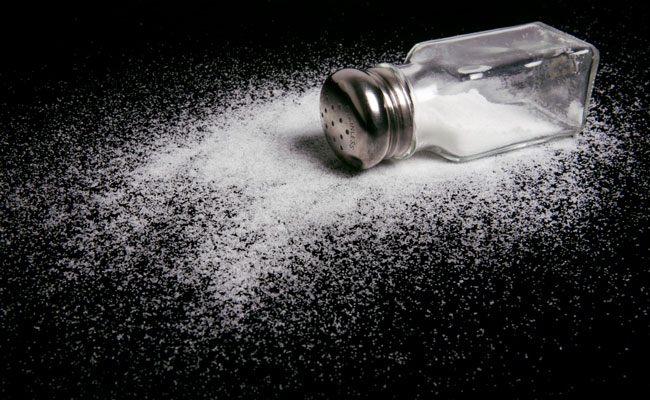China’s 2,132-year old salt monopoly and why it makes sense to finally end it.
Early last year Taobao, Alibaba’s online marketplace, went through a cleansing process to remove contraband being sold by merchants on the site. What was this illicit item? Was it cocaine or heroin sale of which is prohibited under China’s Drug Administration Law? No. Was it firearms which private citizens in China are not allowed to own or sell? No. Was it stolen merchandise being resold by unscrupulous thieves? No. In fact, the Taobao merchants were attempting to sell… common table salt.
That’s right–table salt. Under Chinese law, it is illegal for any entity except the China National Salt Industry Corporation (“China Salt” for short) to sell salt for household use in mainland China. This makes China Salt a government-mandated monopolist. Salt in China is perhaps the world’s oldest monopolized industry. Although there have been brief periods of non-enforcement, the monopoly has operated continuously for 2,132 years since it originated in 119 BC during the reign of Emperor Wu of Han.
During Taobao’s cleansing process from February 26 to March 8 of 2013, merchants were ordered to stop selling salt unless they were government sanctioned (in Chinese). This would allow for only China Salt and its wholly-owned subsidiaries. Taobao’s enforcement was mild compared to past efforts. In 1994 China created a special police force just to enforce the salt monopoly. At one point the force numbered 25,000 officers and engaged in operations one could envision occurring in a television crime drama (see this article).
The salt monopoly is back in the news because China is considering dismantling it. Although one has to admire this monopoly’s resilience, economic principles say it is time for it to end. There are three main reasons that economists worry about monopolies like China Salt. First, having multiple firms competing is helpful because it pushes them to produce and price at the lowest possible cost. If firms don’t work hard to reduce their costs or attempt to price higher than their costs, they face consequences. Other firms, seeing the opportunity to profitably steal market share, will undercut them on price. This competitive pressure is good for customers because it means prices will be as low as possible. It also means that resources will be used efficiently as costs are driven as low as possible.[1] A monopolist, in contrast, is an island unto itself. Not similarly constrained, it will charge a price above, perhaps well above, its production costs.
Of course, China Salt is not an ordinary monopoly because it is controlled by the government. Perhaps the Salt Affairs Bureau–the bureaucracy that controls the salt industry–is not concerned with China Salt’s profits and watches out for customers by forcing China Salt to keep costs low and prices close to its costs (or maybe even below). I don’t know enough about the costs of producing salt in China to know how China Salt’s prices compare; however, the fact that non-authorized vendors were successfully selling salt on Taobao suggests that there is room to undercut China Salt and its subsidiaries. But perhaps these renegade sellers are temporarily pricing below their costs to get a foothold in the market and will not be able to sustain these prices. This could be. There is one simple way to find out–open the gates to any firm that wants to sell salt. If China Salt offers the lowest sustainable price of any firm then there won’t be many takers of this opportunity.[2] On the other hand, if other firms take the bait and succeed then the result will be lower prices for China’s consumers and more efficient use of resources.
There is another way that monopolists tend to use resources inefficiently and is the second reason to hope for the salt monopoly’s demise. If it enjoys the luxury of charging prices well above its costs, a monopoly must devote resources to preventing others from getting in on the action. The temptation is great because there is money to be made. In China Salt’s case the government handles protection for them. The government devotes resources to identifying illegal sales of salt, prosecuting the sellers, and punishing them. How much is spent on this is unknown but a salt police force numbering in the tens of thousands suggest that the costs were non-trivial at least at one point in time. The vexing part of these expenditures is that they exist solely to preserve the inefficiently high profits that the monopolist enjoys. Better that these resources were devoted to ensuring the safety and integrity of salt sold in China.
The third reason is that monopolists, being insulated from the rigors of competition, may not feel the need to innovate. This is a very important reason in high-technology industries which evolve quickly. It is probably not so important in the salt industry. Nonetheless, innovations in how salt is distributed and sold may bring about cost reductions or increased convenience for customers. This could be another reason that the illegal merchants on Taobao had succeeded. Perhaps their delivery times, service, or packaging were superior to those of China Salt.
We can hope that 2,132 years from now in the year 4146 people reflect back and marvel at how purveyors of salt have been competing to provide salt (if that is what people are still using) at the lowest possible cost.
Update: An article in The Global Times demonstrates that the problems of unrelated diversifications that I discussed in the context of WISCO can also plague a private steel company–this time the Highsee Group that diversified into banking and securities firms.
Another Update: I previously discussed a price war that China’s electronics retailers flirted with and the disastrous consequences it would have for prices. The same game is now being played in the market for taxi apps. Kuaidi, one of the service providers, recently stated that it would forever rebate one yuan more to users of its app than its competitors rebated. It will be interesting to see if this statement is more credible than those of the appliance retailers.
_____________________________________________________________________________________________________
[1] This is a similar to an argument I made when discussing CCTV’s concerns about the pricing of Starbucks’ coffee.
[2] I made a similar point in discussing the government’s efforts to reduce papermaking capacity.

















